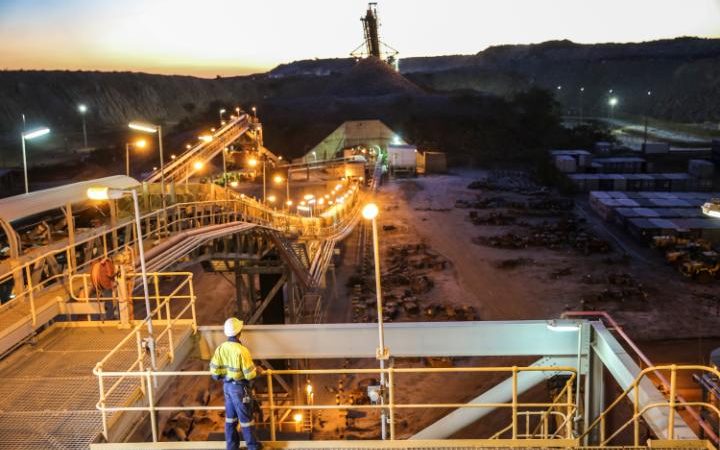R.B
JF-Expert Member
- May 10, 2012
- 6,296
- 2,573

Acacia's Bulyanhulu is one of two mines at the centre of a dispute with Tanzania
The management of stricken gold mining company Acacia has been excluded from talks with the Tanzanian government about resolving a tax dispute after its majority shareholder Barrick Gold intervened.
In a blow to chief executive Brad Gordon and his team, Acacia was forced to admit that it would not be a party to the negotiations between Barrick and Tanzania, which are seeking an end to a four-month dispute over royalties the company allegedly owes on gold exports.
Acacia told investors that any deal reached in the talks would be subject to its approval, and that it would “work with Barrick as necessary to support such discussions”.
Canadian company Barrick, which owns 63pc of Acacia, is hoping to convince President John Magufuli to lift an export ban on gold concentrate, the powdered form of the metal, which is shipped out of Tanzania to be turned into gold bars.

CEO of Acacia Mining Brad Gordon
Barrick is also hoping to reach a settlement with Tanzania over claims that Acacia has been under-reporting the amount of the concentrate it exports by a factor of ten - essentially amounting to a multi-million dollar fraud. The dispute is costing Acacia around $1m from lost export revenue.
The move towards formal talks follows a meeting between John Thornton, executive chairman of Barrick, and President Magufuli last month, and comes after Tanzania’s parliament voted through a trio of bills that could dissolve the underlying contracts held by natural resources producers in the country.
Under the terms of the new laws, parliament will be able to rip up a contract with a mining company if it is deemed to have “unconscionable terms”.
Tanzania also passed a bill to prohibit disputes relating to natural resources being heard in foreign courts. To forestall this, Acacia announced today it had served ‘notices of arbitration’ on two of its three gold mines in the country. These notices mean it can seek intervention at the London Court of International Arbitration, should Tanzania honour its original contracts.
"This is a necessary step to protect the interests of our stakeholders in light of the ongoing dispute, however we still believe a negotiated resolution is the best outcome and will continue to work towards this," an Acacia spokesman said.
Tyler Broda, an analyst at RBC, said he viewed Acacia’s exclusion “as a slight negative” given that Mr Gordon had noted last month that he expected the company to be part of the discussions. “That said, any potential resolution will have to be approved by the company’s shareholders,” he added.
Shares in FTSE 250-listed Acacia fell 1.3pc in afternoon trade. The stock has dropped 47pc since the row began.
Share this article